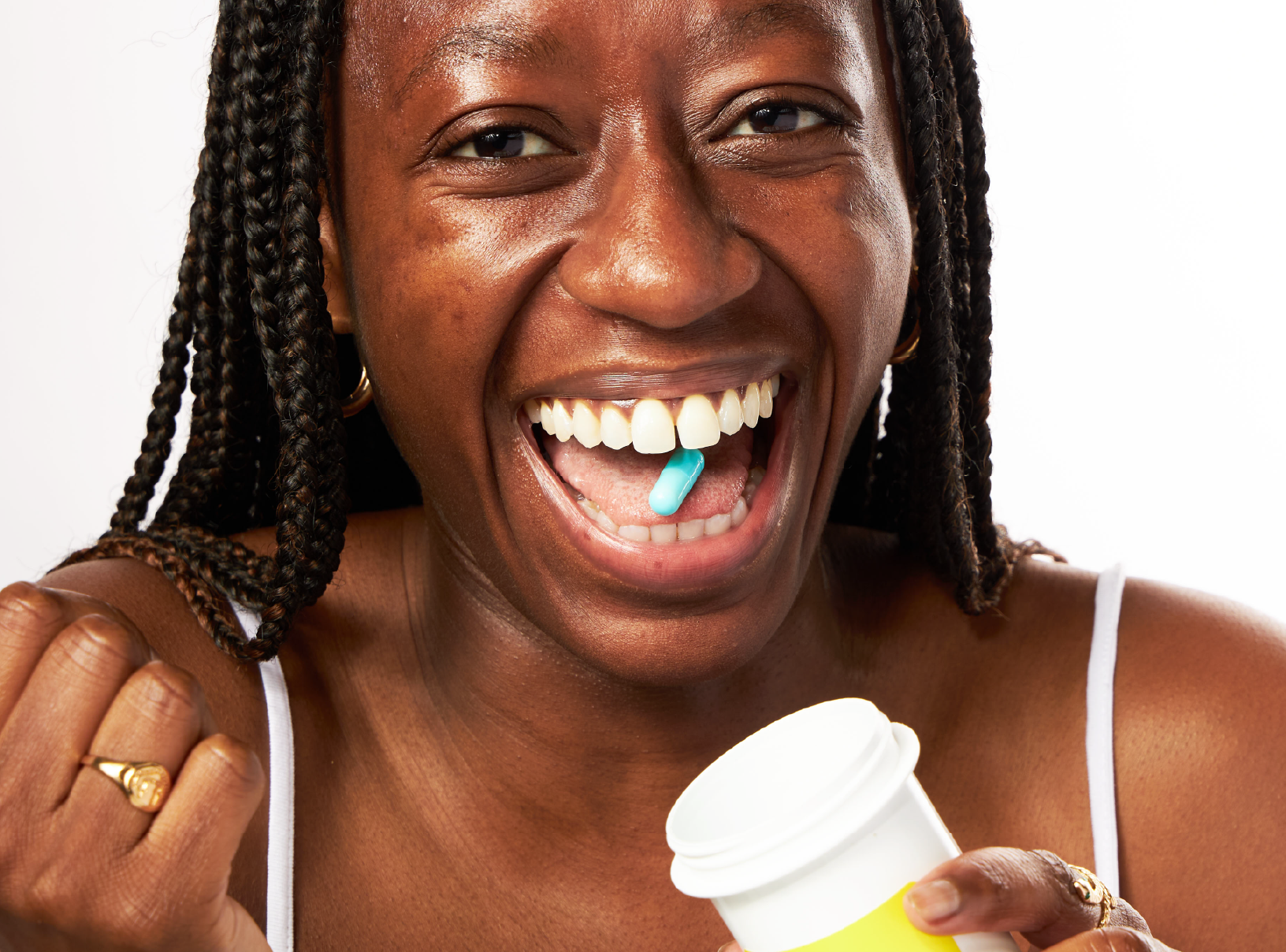Apostrophe Treatments
Oral Acne Medications: What You Need To Know
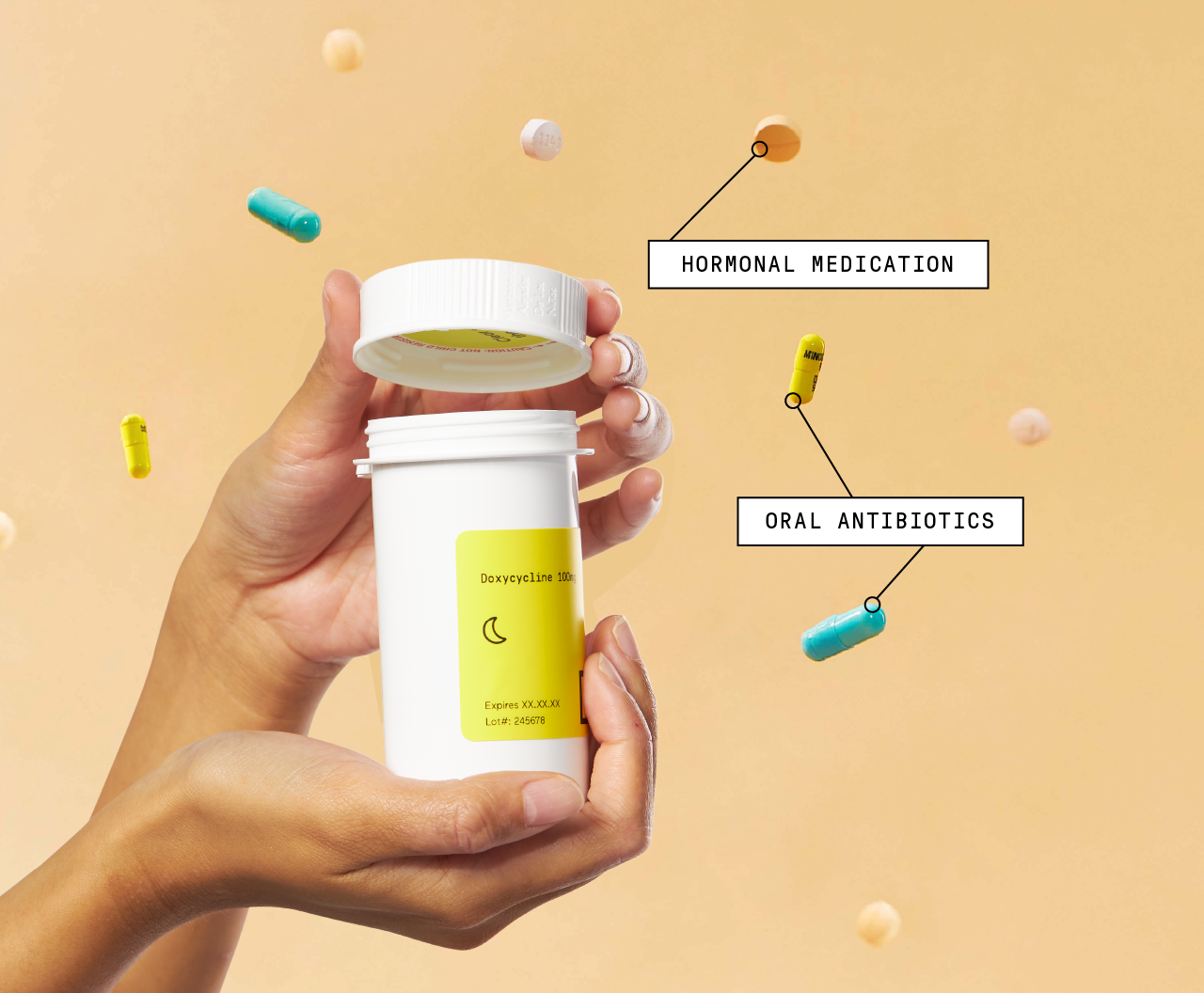
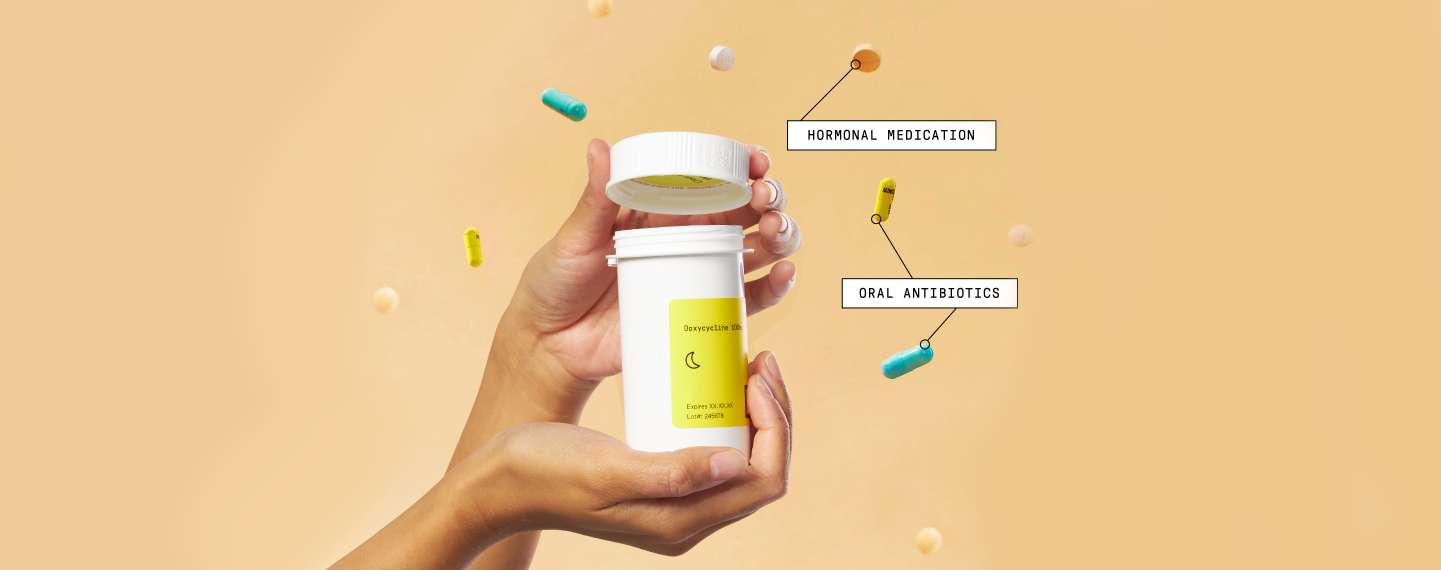
SHARE
Apostrophe Treatments
Oral Acne Medications: What You Need To Know
Medically reviewed by Aimee Paik, MD
Written by Annie Lam
Last updated 4/1/2022
When it comes to looking for the best acne treatment for you, there are endless products out there. Here at Apostrophe, the dermatologists on our platform recommend topical and oral acne medications to effectively treat your skin and concerns. There are several types of oral acne treatments, so today we'll be breaking down the most commonly prescribed oral medication for acne vulgaris.
Why do dermatologists prescribe oral acne medication?
While topical treatments are a great option for keeping acne under control long term, a patient with moderate to severe acne may also be prescribed oral medication to effectively treat their acne.
Typically, dermatologists will take a look at the types of acne you experience and their severity when deciding what treatments would work best for your acne breakouts.
Oral medication is typically prescribed to patients with more moderate to severe or cystic acne. It’s prescribed alongside topical treatments for best results.
Dermatologists also take a look at your medical history to determine if oral acne medication is the best fit for you and your skin.
The main types of oral acne medication
While there are many oral medications that can be used to treat acne, they typically fall under three main buckets: hormonal/adult acne medication, oral antibiotics, and oral retinoids. Here's how these three types of medications treat acne:
Hormonal acne medication
Hormonal/adult acne is often found on the chin and jawline. It's commonly found in women in their 20s and 30s (and beyond) and is caused by an increase in androgens. Androgens are a class of hormones that can cause abnormal follicular epithelialization (meaning your dead skin cells don’t shed properly), which can directly lead to breakouts.
While there are great topical treatment options, your dermatologist may also prescribe oral medications to help treat hormonal breakouts. The most commonly prescribed medications are:
Spironolactone
Spironolactone is a diuretic that was originally prescribed as a blood pressure medication. This hormonal acne treatment helps to decrease testosterone levels and block androgen receptors. This helps to balance sebum production and reduce acne-causing bacteria.
Oral spironolactone is typically only prescribed to cis-women or trans-women. Cis-men or patients sensitive to medications are not the best candidates for oral spironolactone.
Birth Control Pill
Another option for hormonal breakouts is the birth control pill. Oral contraceptives (birth control pills) with estrogen and progesterone can help lower the effect of androgens. Like spironolactone, this helps with reducing hormonal breakouts by balancing sebum production in the skin.
It's important to talk to your doctor to see if birth control is the right fit for you. Similar to spironolactone, it is typically only prescribed to cis-women or trans-women.
These medications are great for hormonal breakouts, but if you're dealing with inflammatory lesions or more cystic acne, oral antibiotics or isotretinoin may be a better fit for you.
Oral antibiotics
Many dermatologists prescribe topical antibiotic treatment to help calm inflammation in the skin. While topical antibiotics are a great long-term treatment option, oral antibiotics are a great option for more severe acne. Oral antibiotics help to quickly calm inflammatory acne, making them a great option for cystic breakouts.
Oral antibiotics help to kickstart rapid improvement by getting painful, inflamed acne under control quickly. This treatment is only prescribed for short-term use (typically a period of 3-6 months) in order to prevent antibiotic resistance.
Some commonly prescribed antibiotics for acne are doxycycline and minocycline.
Before starting treatment, every patient is provided with specific instructions from their doctor to ensure they will see the best progress in their skin.
Oral retinoids
Isotretinoin (commonly known as Accutane) is an oral acne treatment that is prescribed for very severe acne. Oral isotretinoin is commonly used to treat severe cystic acne.
Isotretinoin helps to normalize follicular epithelialization (skin sloughing) and shrink sebaceous glands. With all breakouts, there is a buildup of keratinocytes at hair follicles which leads to clogged pores. Isotretinoin helps normalize epithelialization to resurface the skin and remove the keratinocyte buildup.
While isotretinoin is one of the most effective options for treating acne, it does have potential side effects. Isotretinoin must be used alongside two forms of birth control in women because of the potential risk of birth defects.
Isotretinoin treatment is always done under the care of a dermatologist to ensure each patient is seeing progress in their skin and the treatment is done safely.
What are the side effects of these acne medications?
Like all medications, there are potential side effects that come with these treatments. For hormonal medications like spironolactone, you may experience mild headaches, irritability, and breast tenderness. For oral antibiotics, increased sun sensitivity, nausea, and stomach upset are potential side effects.
Your dermatologists will provide any information you need to know about side effects and detailed instructions for use. It's important to read your entire medication guide before starting treatment.
If you have any questions or experience an adverse effect from your medications, we always recommend reaching out to your dermatologist or healthcare provider at any time.
Where can you get oral acne medications?
As mentioned earlier, all prescription acne treatments must be prescribed by a doctor or dermatologist. You can visit your local derm to see if you're a good candidate for oral or topical medication, or you can visit Apostrophe.com to start an online derm visit.
At Apostrophe, we prescribe oral and topical treatments to effectively target body and facial acne, signs of aging, acne scars, rosacea, and more. If you're looking for an easy, convenient way to get expert treatment for your skin, we've got you covered.
You'll receive a customized treatment plan crafted by a board-certified dermatologist. We even deliver your treatments directly to your door - no in-person derm visits or trips to the pharmacy needed. Get started on your skincare journey today!
Shop this post
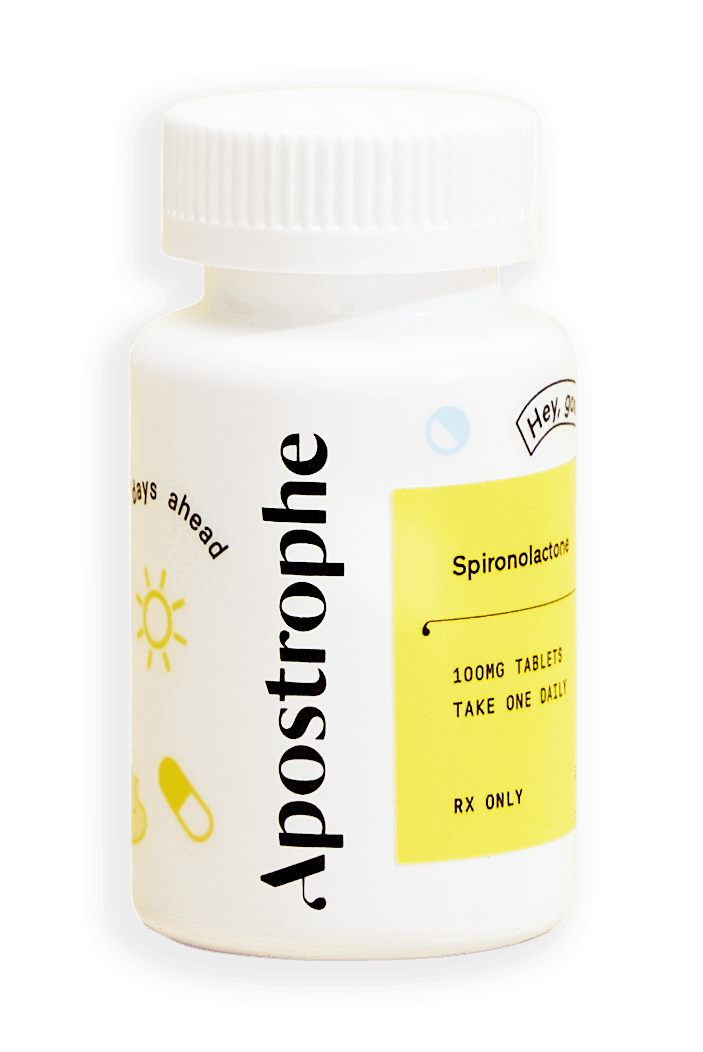
Oral doxycycline

Oral minocycline

Oral Spironolactone
Like what you just read? Sign up for our email list to get the scoop on skincare science delivered straight to your inbox.

Education
What is milia?
What is milia? Today, we’re jumping into one type of bump that you may have heard about most commonly in infants — milia.
Read More
Education
Best moisturizer for acne-prone skin
If you have combination acne-prone skin, figuring out which moisturizer is best for your skin might be tough. In this guide, we break down the best moisturizer for combination, acne-prone skin.
Read More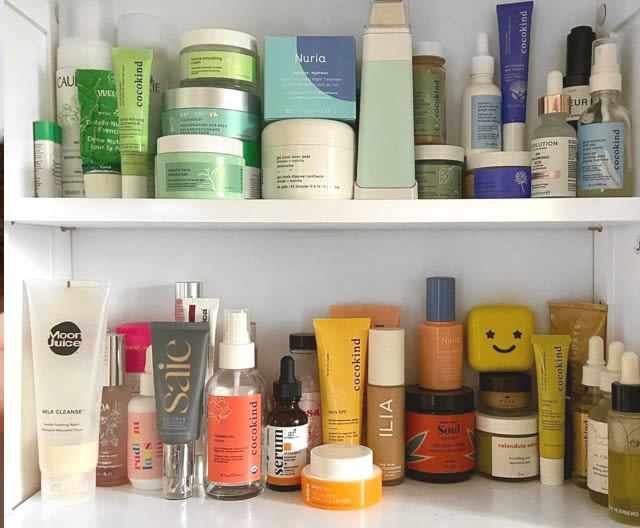
Education
How to build a face care routine
As you get into skincare, it might seem overwhelming, especially trying to figure out the order you're supposed to apply products in. Below, we detail how to build a face care routine for your skin!
Read More